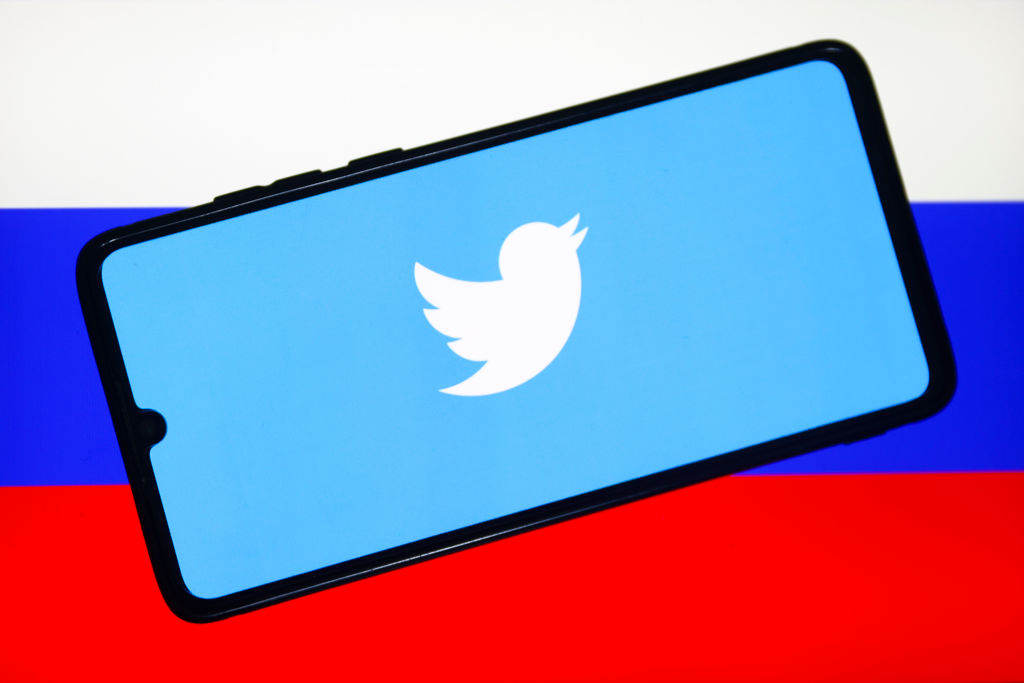Following the 2016 presidential election, the Democrats and the legacy media were quick to denounce the results, claiming that it was “rigged,” “illegitimate,” and a “hoax,” and using Russia as their scapegoat. The 14th installment of the Twitter Files reveals that the chief facet of the left’s election denialism was based on a mendacious conspiracy theory that the Russian government intervened to help then-candidate Donald Trump and harm Hillary Clinton. The latest documents show that conservatives were right: This was nonsense.
The Twitter Files: Part 14
 Independent journalist Matt Taibbi published a 40-tweet thread highlighting “the fake tale of Russian bots” that supported the Democrats in denouncing the Jan. 2018 Devin Nunes Report. The Nunes Report provided details surrounding the many problems associated with the Trump-Russia collusion investigation. Taibbi revealed emails and memos between Democrats and the Twitter team confirming there was no connection to President Vladimir Putin and the Kremlin.
Independent journalist Matt Taibbi published a 40-tweet thread highlighting “the fake tale of Russian bots” that supported the Democrats in denouncing the Jan. 2018 Devin Nunes Report. The Nunes Report provided details surrounding the many problems associated with the Trump-Russia collusion investigation. Taibbi revealed emails and memos between Democrats and the Twitter team confirming there was no connection to President Vladimir Putin and the Kremlin.
While Democrats claimed that the Nunes memo was “boosted” by Russian actors, Twitter officials did not find any evidence of Moscow’s influence. One person suggested that “we are feeding congressional trolls,” while another noted that there was “not any…significant activity connected to Russia.”
“Twitter warned politicians and media they not only lacked evidence but had proof the accounts weren’t Russian – and were roundly ignored,” Taibbi wrote.
Following the report, Sen. Dianne Feinstein (D-CA) and Rep. Adam Schiff (D-CA) penned an open letter, warning that the #ReleaseTheMemo hashtag “gained the immediate attention and assistance of social media accounts linked to Russian influence operations.” Sen. Richard Blumenthal (D-CT) asserted that it was “reprehensible that Russian agents have so eagerly manipulated innocent Americans.” But how did the Democratic trio and members of the press come to this conclusion? By relying on the same single source: The Hamilton 68 dashboard, a project of the Alliance for Securing Democracy (ASD) that monitors real-time information on “Russian propaganda and disinformation online.”
Twitter executives, from Communications Chief Emily Horne to Trust and Safety head Yoel Roth, were taken aback because Democrats had been utilizing a single source “and no one was checking with Twitter.”
“I just reviewed the accounts that posted the first 50 tweets with #releasethememo and… none of them show any signs of affiliation to Russia,” Roth said. “We investigated, found that engagement as overwhelmingly organic, and driven by VITs [very important tweeters].”

(Photo by Beata Zawrzel/NurPhoto via Getty Images)
The company went as far as reaching out to the trio and was brushed aside because Twitter officials “don’t believe these are bots.” The team “grew frustrated over what they saw as a circular process,” Taibbi noted. Twitter staffers realized that Sen. Blumental was not “looking for real and nuanced solution,” but rather he desired “to get credit for pushing us further.”
Senior executives compared the situation to the classic children’s book If You Give a Mouse a Cookie. “In the story, if you give a mouse a cookie, he’ll want a glass of milk, which will lead to a wave of other exhausting requests, at the end of which he’ll want a glass of milk. And one more cookie,” Taibbi wrote.
Despite the internal consensus that there was nothing of substance to the Russian claims, Twitter ostensibly conceded defeat and refrained from challenging the narrative being peddled by the mainstream media and high-level Democrats. Due to Twitter sitting on the sidelines, many of the major news outlets used the same theme: Blame Russia.
The former Rolling Stones reporter reached out to the politicians involved and many of the media organizations, including the Associated Press, Politico, and NBC. Everyone declined to comment. Nunes did reply to Taibbi’s request for comment, telling him that “By spreading the Russia collusion hoax, they instigated one of the greatest outbreaks of mass delusion in U.S. history.”
More to Come
This is just one episode of the Russiagate fiasco inside the Twitter Files, according to Taibbi. “The Russiagate scandal was built on the craven dishonesty of politicians and reporters, who for years ignored the absence of data to fictional scare headlines,” he said. Be it censorship or narratives, Twitter was a valuable resource exploited by Washington insiders, corporate officials, and government agencies. What will the public learn next?
Do you have an opinion about this article? We’d love to hear it! If you send your comments to [email protected], we might even publish your edited remarks in our new feature, LN Readers Speak Out. Remember to include the URL of the article along with your name, city, and state.
Please respect our republishing guidelines. Republication permission does not equal site endorsement. Click here.

